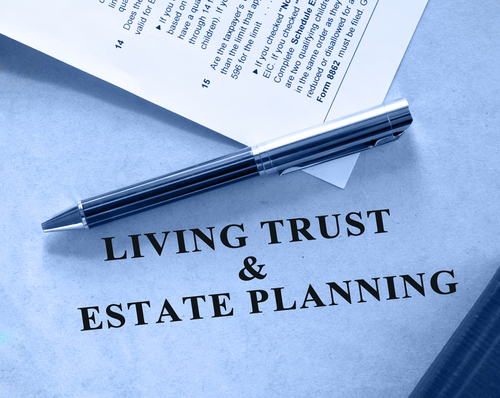As the world evolves, so too do the complexities surrounding estate planning and real estate strategies for high-net-worth individuals. Navigating this intricate landscape requires a firm understanding of various legal considerations, from trust and estate litigation to the implications of climate change on property investments. With emerging trends in remote real estate transactions and a heightened focus on sustainability, it has never been more crucial for affluent individuals to develop strategic estate planning that addresses both current and future challenges.
Estate planning is not just about the distribution of assets; it encompasses a wide array of topics including tax implications, asset protection, and elder law, particularly as individuals face issues related to long-term care services and senior healthcare planning. Moreover, the intersection of real estate law and environmental law has become increasingly significant, leading to the need for sustainable development practices in real estate investment. By focusing on comprehensive estate administration and understanding fiduciary responsibilities, high-net-worth individuals can ensure that their wealth is preserved and effectively managed for future generations amidst the dynamic changes of our world.
Understanding Estate Planning for High-Net-Worth Individuals
Estate planning for high-net-worth individuals involves a comprehensive strategy to manage and preserve wealth across generations. Given the complexities of significant assets, from real estate to investments, it is essential to develop a tailored plan that addresses both current needs and future goals. This includes assessing individual circumstances, understanding family dynamics, and recognizing the implications of tax laws and regulations that could impact the transfer of wealth.
A central aspect of estate planning is the use of trusts, which can provide asset protection and minimize tax liabilities. High-net-worth individuals often utilize various types of trusts to ensure that their estate is managed according to their wishes while also reducing exposure to estate taxes. Additionally, strategic estate plans must consider the potential for trust and estate litigation, as disputes can arise among heirs and beneficiaries if there is any ambiguity in the estate’s structure or intentions behind asset distribution.
In an evolving legal landscape influenced by factors such as climate change and digital transactions, high-net-worth individuals must stay informed about emerging trends that affect real estate and estate law. Legal considerations include sustainability initiatives in property investment and navigating remote real estate transactions, which are becoming increasingly common. By proactively addressing these complexities, individuals can secure their legacies and ensure their assets are protected in a changing world.
Legal Considerations in Trust and Estate Litigation
Trust and estate litigation can arise from a variety of disputes, including contests over the validity of wills, disagreements among beneficiaries, and claims regarding the mismanagement of trusts. High-net-worth individuals often have complex estates that can lead to significant legal challenges. It is essential for all parties involved to understand the intricacies of trust and estate law to navigate these disputes effectively. Legal representatives must be adept in both probate law and property law to address the various claims that may surface during litigation.
When engaging in trust and estate litigation, it is crucial to consider fiduciary responsibilities. Executors, trustees, and guardians are tasked with managing assets responsibly and in accordance with the law. Any failure to uphold these responsibilities can lead to allegations of breach, which can complicate the resolution of disputes. Litigants must provide clear evidence of mismanagement or misconduct to support their claims, and having well-documented records can be invaluable in court proceedings.
Another significant aspect is the tax implications associated with estate litigation. Disputes can lead to delays in the distribution of assets, potentially affecting the overall tax burden on the estate. Understanding Medicaid rules and elder law is also vital, especially when considering long-term care and its impact on estate planning strategies. Addressing these legal considerations upfront can help mitigate unforeseen complications and facilitate a smoother litigation process.
Real Estate Strategies in a Changing Environment
Learn More from Michael E Weintraub Esq
As the landscape of real estate evolves due to demographic shifts, climate change, and technological advancements, high-net-worth individuals must adopt innovative strategies. Sustainable development has become a crucial consideration, as properties that incorporate eco-friendly features tend to retain value better and attract discerning buyers. Investing in real estate that prioritizes sustainability can not only fulfill ethical obligations but also provide tax advantages and enhanced market appeal.
Learn More from Michael E Weintraub Esq

Remote real estate transactions have changed the dynamics of property investment, allowing high-net-worth individuals to diversify their portfolios without geographical constraints. Utilizing digital platforms for transactions can streamline the buying and selling process, reducing costs and increasing efficiency. However, this shift also introduces legal considerations, such as ensuring compliance with property law and understanding the implications of digital contracts. Engaging knowledgeable legal counsel is essential for navigating these complexities and mitigating potential risks.
Furthermore, understanding local and global real estate trends is vital for making informed investment decisions. Factors such as climate resilience, urban redevelopment, and community planning play significant roles in determining property values and investment viability. High-net-worth individuals must also consider the implications of estate planning and asset protection strategies in the context of their real estate investments to ensure their wealth is preserved for future generations, while aligning with their long-term financial goals.
The Impact of Climate Change on Property Law
As climate change continues to reshape our environment, the implications for property law are becoming increasingly significant. Rising sea levels, more frequent and severe weather events, and changing land use patterns are forcing legal systems to adapt. Property owners are facing uncertainties regarding the value and insurability of their assets, which may be affected by newly established environmental regulations and zoning laws aimed at mitigating climate risks. These developments necessitate a thorough understanding of the legal landscape surrounding property rights and responsibilities in the context of climate change.
Legal considerations extend beyond mere ownership; they encompass liability issues as well. For example, property owners may be held accountable for damages caused by natural disasters exacerbated by climate change, leading to increased litigation over liability for losses. Additionally, local governments might impose stricter building codes in vulnerable areas, which can significantly impact property values and investment strategies. High-net-worth individuals must navigate these evolving regulations while also considering the long-term sustainability of their real estate investments.
In response to these challenges, strategic estate planning becomes essential for protecting assets from climate-related risks. This includes assessing property locations, understanding the potential for future environmental impacts, and incorporating sustainable development practices within investment strategies. High-net-worth individuals should consider the implications of climate change not only on their current holdings but also on the next generation’s ability to manage these assets. Proper planning will help ensure the resilience and longevity of real estate investments in an uncertain future.
Navigating Digital Transactions in Real Estate
The rise of digital transactions has significantly transformed the landscape of real estate, particularly for high-net-worth individuals. With the increasing demand for efficiency and speed in property transactions, many are turning to online platforms for buying and selling real estate. This shift not only streamlines the process but also opens up opportunities for remote transactions, allowing clients to engage with properties across the globe without the need for physical presence. Familiarity with these digital tools is essential for effective asset management and wealth preservation in today’s fast-paced market.
However, as the real estate industry embraces digital solutions, legal considerations become paramount. High-net-worth individuals must navigate a complex web of property laws, ensuring compliance with legal requirements specific to their jurisdiction. Digital transactions may involve electronic signatures, online notarization, and secure document management systems that necessitate a robust understanding of both real estate law and environmental regulations. Additionally, the implications of these transactions on estate planning and tax liabilities must be carefully evaluated to avoid pitfalls.
Lastly, the integration of sustainability into real estate investments is influencing digital transaction strategies. With climate change and environmental concerns gaining traction, high-net-worth individuals are increasingly interested in properties that prioritize sustainable development. This trend not only supports long-term investment viability but also enhances the fiduciary responsibility to future generations. By leveraging digital transaction tools, investors can more easily access data on sustainability metrics and make informed decisions that align with their personal values and wealth management goals.
Learn More from Michael E Weintraub Esq
Wealth Management and Tax Implications
Wealth management for high-net-worth individuals involves an intricate balance of investment strategies, financial planning, and tax optimization. As these individuals often have diversified portfolios, effective management requires a comprehensive understanding of tax laws and regulations that impact investments. Strategies such as tax deferral, tax-efficient investments, and the use of trusts can significantly influence the overall wealth trajectory and ensure that wealth is preserved for future generations. A proactive approach to wealth management considers the unique financial landscape each individual faces, especially with ongoing legal changes and economic uncertainties.
The tax implications associated with real estate transactions and estate planning can be substantial. High-net-worth individuals must navigate complex property taxes, capital gains taxes, and inheritance taxes that can significantly affect their net worth. Additionally, understanding the tax ramifications of gifting property or assets can help in strategic planning to minimize tax burdens. Employing strategies like 1031 exchanges or utilizing opportunity zones can facilitate real estate investments while optimizing tax outcomes, reinforcing the overall financial strategy and enhancing wealth preservation efforts.
Learn More from Michael E Weintraub Esq
As regulations evolve, particularly in response to climate change and sustainable development, high-net-worth individuals should remain vigilant and informed. Changes in tax incentives for green real estate investments and the financial implications of environmental regulations can shape investment decisions. Integrating sustainability into wealth management and estate planning not only aligns with contemporary values but also leverages potential financial benefits, further solidifying an individual’s legacy while addressing pressing social issues. Balancing these considerations within a comprehensive wealth management strategy is crucial for fostering long-term financial health and resilience.
Sustainable Development and Future Real Estate Trends
As high-net-worth individuals increasingly prioritize sustainability, the real estate sector is adapting to incorporate environmentally responsible practices. Future real estate trends will prominently feature green building designs, energy-efficient technologies, and sustainable materials. Developers and investors are recognizing that eco-friendly properties not only appeal to environmentally conscious buyers but also offer long-term economic benefits through reduced operational costs and enhanced property values.
Climate change is reshaping real estate investment strategies, as investors seek properties in locations less vulnerable to environmental risks. This shift leads to a growing interest in sustainable development and low-impact design in areas that are resilient to climate fluctuations. High-net-worth individuals are now more inclined to consider the environmental performance of their investments, pushing for developments that integrate renewable energy sources and promote sustainable land use.
Legal considerations surrounding real estate transactions must evolve in tandem with these trends. Estate planning strategies will need to account for sustainability factors, offering high-net-worth individuals ways to align their financial goals with their environmental values. This includes incorporating provisions for renewable energy installations, sustainable landscaping, and compliance with evolving environmental regulations, ensuring that their legacies reflect both financial prudence and a commitment to future generations.


